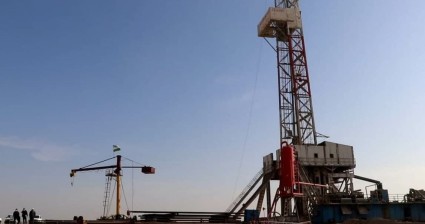Uzbekistan plans to halve the poverty rate by 2026, said the Deputy PM/Minister of Economic Development and Poverty Reduction, Jamshid Kuchkarov at the international forum on poverty reduction, held in Bukhara on May 26, told how this is planned to be done, the Gazeta.uz correspondent reports.
The Deputy Prime Minister recalled that in 2020, for the first time in the history of the country, the issue of poverty reduction was identified as one of the main goals of economic reform.
According to him, in a short period of time, "an institutional system for reducing poverty was created and effective tools based on fundamental approaches were implemented." A unified social register has been formed, minimum consumer spending has been introduced, targeted social assistance to each child in low-income families, a new system of vocational training, he listed.
The introduction of minimum consumer spending has made it possible to revise the minimum level of social payments and benefits. In 2021, the size of the minimum pensions and benefits for the disabled, as well as for families who have lost their breadwinner, increased by 10-50%, the Deputy Prime Minister said.
Reducing poverty by half by 2026, as well as ensuring sustainable high and inclusive economic growth are the main goals of Uzbekistan's development strategy, Jamshid Kuchkarov noted. For this it is planned to:
- provide the necessary conditions for the development of the private sector, including small and medium-sized businesses, which will create sustainable jobs;
- develop human capital and increase labor productivity. Enrollment in preschool and higher education in Uzbekistan has almost doubled in recent years. In 2026, it is planned to expand the coverage of preschool education to 80% (now - 69%) and higher education - to 50% (28%). By 2026, vocational training is planned for 1 million unemployed (primarily women and youth).
- increase the amount of public resources allocated to social projects by liberalizing energy prices and reducing inefficient subsidies. Particular attention will be paid to the protection of low-income families;
- accelerate the transformation and privatization of state-owned enterprises and improve the competitive and business environment;
- increase productivity in agriculture, first of all, deepen land reforms;
- continue reforms aimed at accelerating the transition to a green and digital economy.
He welcomed the new framework partnership program of the World Bank with Uzbekistan for 2022-2026. It focuses on three strategic goals: increasing inclusive employment in the private sector; development of human capital; and enhancing prosperity and sustainable development through green economic growth.
“Achieving the set goals and implementing reforms will require not only financial resources, but also institutional capacity building, including training of local specialists,” he said.
To date, the minimum consumer spending is 498 thousand soums per month (16.3 thousand soums per day). This indicator is used to determine the poverty line in the country.












